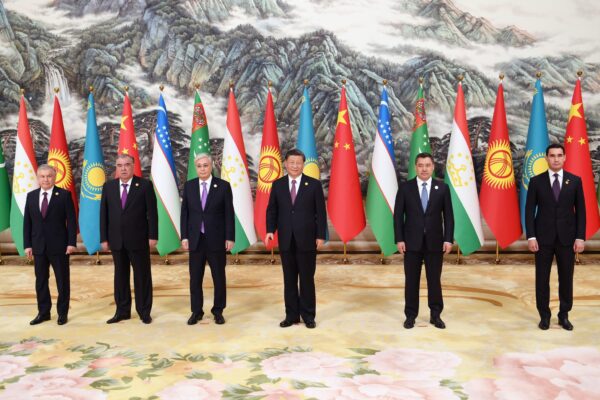PROTECT YOUR DNA WITH QUANTUM TECHNOLOGY
Orgo-Life the new way to the future Advertising by AdpathwayFor a few days, Afghans abroad awoke to silence. No WhatsApp notifications, no missed calls, no messages from loved ones. The Taliban’s internet ban had severed families and cut Afghanistan off from the world. The quiet was suffocation, not only for those inside the country but for those watching helplessly from afar.
On September 29, a nationwide internet blackout swept across Afghanistan, silencing even the bustling capital, Kabul. For three days, an entire country disappeared from the digital map. The sudden loss of connection spread fear and uncertainty through Afghan communities everywhere. Many spent those days refreshing their phones, hoping for a single message to break the silence.
Among them was Sana Kawon, a freshman at the University of Virginia.
“The internet ban has made it very difficult to stay in touch with family and friends in Afghanistan,” she said. “Now, information is limited or completely missing. It has become harder to know what is really happening inside the country.”
She remembers the moment she found out. Walking to class on a Monday morning, she answered a call from her parents telling her the internet had been banned. She froze, standing in shock for several minutes, her hands trembling as she texted friends to share the news.
Tajalla Moslih, the co-author of this piece, had a similar experience. A friend she has known since 10th grade, still in Afghanistan, went silent during the blackout. For days, there was no word, no sign of safety. When the connection finally returned, her friend called in tears, unsure how long it would last. Her friend’s two sisters live abroad and send money to Afghanistan to pay for rent and their mother’s medical bills.
“Those two days felt like ten years,” she said. “I thought I had lost my freedom and my way of staying connected, and I could do nothing about it.”
For countless Afghan families, survival depends on the money relatives abroad send home. Between 2008 and 2022, officially recorded remittances to Afghanistan totaled $6.47 billion, serving as a vital lifeline that covered essential needs such as food, shelter, and education. But without a stable internet or banking infrastructure, sending money becomes nearly impossible.
In a country already suffocated by sanctions and economic collapse, connectivity is not a luxury – it is a condition for survival.
When the Taliban seized power in 2021, they marketed themselves as a “modern” version of their former regime. Four years later, that promise has decayed into authoritarian isolation. The Taliban have systematically dismantled fundamental freedoms: enforcing gender apartheid, tightening media control, unleashing violence, and now severing Afghans’ last connection to the outside world.
These repressive acts are often justified under the hollow pretext of “preventing immorality” – a vague phrase used to police behavior and entrench power. In practice, it enables restrictions on women’s rights, education, and expression while maintaining political control. Millions of Afghan women now live under conditions reminiscent of two decades ago; barred from schools, confined to their homes, and forced to depend on male guardians for the simplest tasks.
Online learning offered a fragile lifeline. If internet access is revoked again, even that last window to the world will close.
For women and girls in Afghanistan, “The internet was their last hope – the only way to learn through secret or online classes,” Kawon explained. “Now that option is gone, leaving them even more isolated.”
Although the internet has returned, the silence left its mark. The blackout showed how quickly an entire country can vanish from view, and how easily the world accepts that disappearance. Afghans now live with the constant fear that the connection could be cut again at any moment, that their voices could once more be erased with the flick of a switch.
The Taliban’s control over communication is not just censorship; it is a form of domination. Every shutdown chips away at the ability of Afghans to learn, to work, to stay connected, and to be seen. Yet the world’s attention fades as quickly as the signal returns.
What the blackout revealed was not only the Taliban’s grip on power, but also global indifference. When authoritarian regimes sever digital ties, silence becomes their most powerful weapon, and global apathy their most reliable ally. When the world stops listening, repression no longer needs to hide. It happens quietly, in the dark, while everyone else moves on.


 1 day ago
1
1 day ago
1






















 English (US) ·
English (US) ·  French (CA) ·
French (CA) ·  French (FR) ·
French (FR) ·